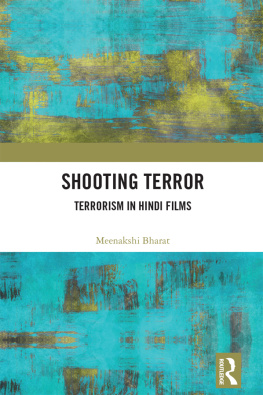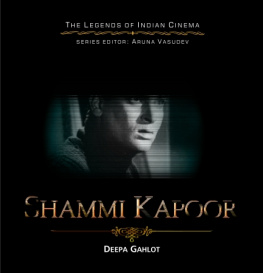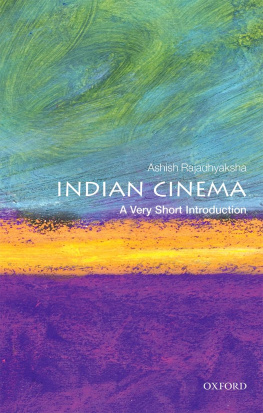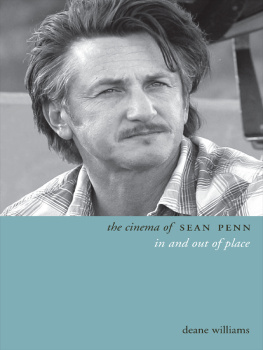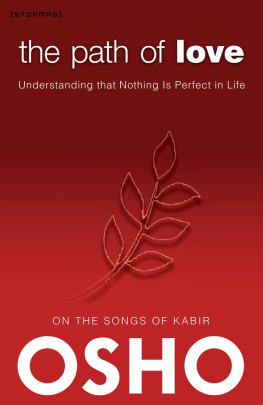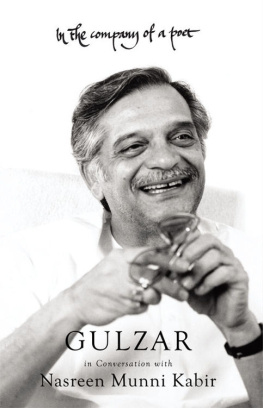Table of Contents
Talking Films and Songs
Talking Films and Songs
Javed Akhtar
in conversation with
Nasreen Munni Kabir


Oxford University Press is a department of the University of Oxford.
It furthers the Universitys objective of excellence in research, scholarship,
and education by publishing worldwide. Oxford is a registered trademark of
Oxford University Press in the UK and in certain other countries.
Published in India by
Oxford University Press
2/11 Ground Floor, Ansari Road, Daryaganj, New Delhi 110 002, India
Oxford University Press 2018
The moral rights of the authors have been asserted.
First Edition published in 2018
All rights reserved. No part of this publication may be reproduced, stored in
a retrieval system, or transmitted, in any form or by any means, without the
prior permission in writing of Oxford University Press, or as expressly permitted
by law, by licence, or under terms agreed with the appropriate reprographics
rights organization. Enquiries concerning reproduction outside the scope of the
above should be sent to the Rights Department, Oxford University Press, at the
address above.
You must not circulate this work in any other form
and you must impose this same condition on any acquirer.
ISBN-13 (print edition): 978-0-19-948211-5
ISBN-10 (print edition): 0-19-948211-X
ISBN-13 (eBook): 978-0-19-909177-5
ISBN-10 (eBook): 0-19-909177-3
Typeset in Perpetua 12.5/15
by Tranistics Data Technologies, New Delhi 110 044
Printed in India by Replika Press Pvt. Ltd
Contents
The book, Talking Films, began with a casual conversation that took place between a friend, Rukun Advani, and myself at the India International Centre (the famous and wonderful IIC) in Delhi sometime in the late 1990s. We met for coffee and talked about different book ideas. Rukun knew that Movie Mahal, the series I had made on Hindi cinema for the UKs Channel 4 TV in the 1980s, included interviews with many of Indias best known film-makers and actors, and he suggested that I think of using these interviews as a basis for a book project.
The first person who came to mind was Javed Akhtar. His intelligence and wit stand out, as anyone who has met him will attest. To me, his larger-than-life personality was evident when we first met on 23 April 1987 at the Sun-n-Sand Hotel in Mumbai during the filming of Movie Mahal.
Since then, we met many times, including an occasion in 1989, when Javed Saab spoke about Amitabh Bachchan for my documentary Follow That Star. Astutely, he situated Vijay, the hero that Amitabh Bachchan played, in the social context of India in the 1970sa persona that he himself had created with Salim Khan. This writing duo, known as Salim-Javed, has left a deep and lasting mark on Hindi cinema. Their powerful screenplays and clever, multi-layered dialogue have brought them recognition that extends far beyond the frontiers of India. From the 1970s on, this celebrated duo was instrumental in taking Hindi cinema in a new and different direction.
Sometime in 1998, I went to see Javed Saab in his beautiful ocean-facing apartment in Juhu and proposed that we do a book together. Perhaps because he had seen my work and had particularly liked the documentary that I had made called In Search of Guru Dutt that he immediately agreed, and the work began.
We recorded our conversations on a tiny tape recorder as we sat in the compact room that was his study. This was before his home was refurbished, after which he moved to a much larger space that became his office. When he spoke about cinema, his analysis was unlike anything I had heard before, or have heard since. We talked for many hours in his Juhu flat, and because I lived in London, and continue to do so, our sessions were spread over a year. I believe we met at least twenty times for about two hours at a time.
Seeing Javed Saabs life from afar, it was difficult to gauge just how busy a life he was leading, and since the late 1990s the pace has only intensified. There was always some pressing deadline to meet and even in those days, the phones never stopped ringing and visitors constantly streamed in and out. Shabana Azmi was also very busy, but she would occasionally pop her head round the door of the study to ask if we needed anything to drink or eat. All the stopping and starting did not really disturb Javed Saabs train of thought and his unwavering focus on the task at hand was remarkable. His sense of humour seamlessly underscored his very serious and keenly observed thoughts and ideas on India and Indian film-making. He also shared personal incidents in his life with wit and intelligence.
At the end of the year, when our conversations had been transcribed, Javed Saab and I sat together and read the whole text to see if it all made sense. The manuscript was approved, sent to the publisher, and then on to the printing press.
Book launches have now become frenetic and star-studded affairs, but those were the pioneering years of publications on Indian cinema in the English language, and our book launch was simple, yet elegant. It took place at the Y.B. Chavan Hall in Mumbai on 23 July 1999. Shabana Azmi read selected passages from the book, and our chief guest, Aamir Khan, officially released Talking Films: Conversation on Hindi Cinema with Javed Akhtar. When it was Javed Saabs turn to speak, he started off by saying with a smile, When Nasreen talked to me about doing a book with her, she was making me an offer that I couldnt refuse.
In the monthsnow yearsthat followed since the release of Talking Films, the enduring and enthusiastic response to the book from academics and cinema lovers the world over has been most gratifying. While aiming to present a slice of cinema history, the text offers a groundbreaking approach to the understanding of Hindi films. It is true that Talking Films was written in the flow of intense and energized conversations, and this has been much appreciated by its readers. Perhaps that is why cinema fans and scholars alike say that the book is now a must-read text on Hindi cinema.
In 2005, we decided to continue our collaboration with another book: Talking Songs. It was a great personal delight to be back again in the company of Javed Akhtar, with his astute and analytical mind, his ever sharp intelligence, and his unfailing sense of humour. Through our continuing conversations, Javed Saab turned his attention to what gives Hindi/Urdu film songs such distinctive expressions of thought and emotion that mean so much for many millions. In addition to his insights on film lyrics and lyricists, we discussed the craft, intuition, and emotion that informed Javed Saabs own songwriting. Sitting in his study, with the phone ringing constantly, and endless interruptions, Javed Akhtar has plucked from his imagination words that some months later have defined for us the intensity of new love or described the perils of war. His countless songs have entered our psyche, sometimes mirroring, sometimes defining a fountain of feelings.
The publication of Talking Songs coincided with Javed Akhtars sixtieth birthday in 2005, and Shah Rukh Khan kindly released the book in Mumbai. Once again, Javed Saabs distinctive voice and insiders perspective engaged readers, encouraging them to think about songwriting in a new and fresh light.


